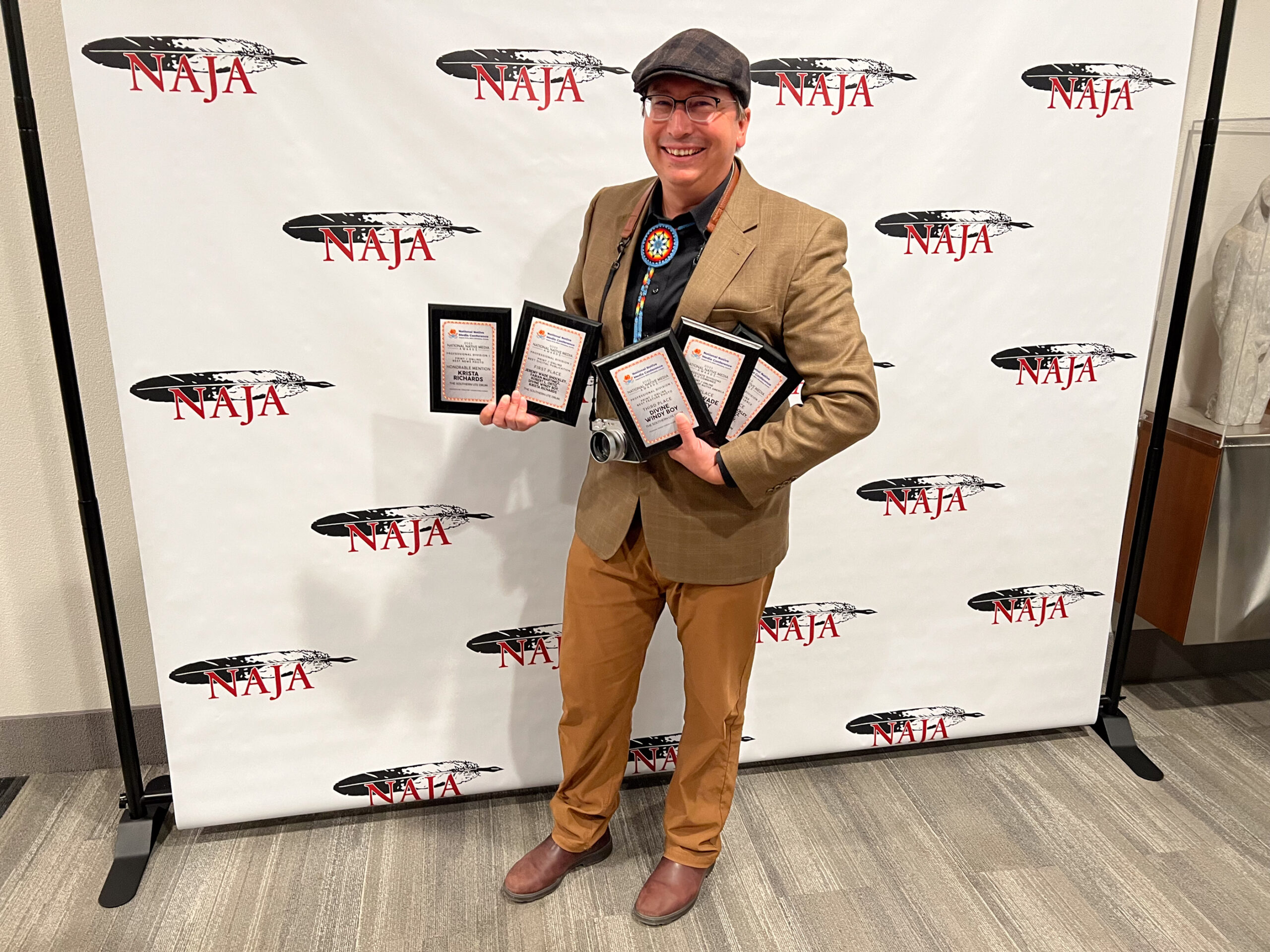Change to be inclusive of Indigenous journalists globally
Members of the Native American Journalists Association (NAJA) voted to change the organization’s name and elected the 2023-2024 Board of Directors during the 2023 National Native Media Conference held this week in Winnipeg, Canada. By a vote of 89–55, or nearly 62 percent, the membership voted to change the name to the Indigenous Journalists Association (IJA), unveiling the new name and logo during the NAJA Membership Luncheon.
“It’s so inspiring to see Indigenous journalists around the world asserting themselves in newsrooms and taking their place as the rightful storytellers of their own narratives. It’s long overdue, and we’re so proud and excited to be a part of that movement,” said NAJA/IJA President Graham Lee Brewer. “Connecting with our brothers and sisters across the globe, from Canada to New Zealand, has made it clear that as Indigenous peoples the struggles we face in this industry are universal.”
The group began in 1983 when several Native American journalists met to form the Native American Press Association. In 1990, the group changed its name to NAJA to expand support for Native voices across all media platforms and ensure accurate and contextual reporting about Native communities.
 “Despite the colonial framework that has warped our histories and shapes the stories told about us today or the challenges of working within structures that weren’t designed for us to thrive, we see Indigenous journalists at every level doing the important work of representing their people. We live in a time when it is possible to connect and create deep, meaningful relationships with Indigenous journalists no matter where they are, and we look forward to helping them find each other to share their knowledge and support,” Brewer said.
“Despite the colonial framework that has warped our histories and shapes the stories told about us today or the challenges of working within structures that weren’t designed for us to thrive, we see Indigenous journalists at every level doing the important work of representing their people. We live in a time when it is possible to connect and create deep, meaningful relationships with Indigenous journalists no matter where they are, and we look forward to helping them find each other to share their knowledge and support,” Brewer said.
NAJA/IJA recognizes Indigenous peoples as distinct groups based on tradition and culture. In this spirit, NAJA/IJA educates and unifies its membership through journalism programs that promote diversity and defends challenges to free press, speech, and expression. The group is committed to increasing the representation of Indigenous journalists in mainstream media and encourages mainstream and Indigenous media to attain the highest standards of professionalism, ethics, and responsibility.
The Indigenous Journalists Association (IJA) board of directors elected its first executive committee for 2023-2024 during a meeting, Thursday, Aug. 17. Christine Trudeau, Jourdan Bennett-Begaye, Angel Ellis and Savannah Maher were elected to positions on the executive committee.
- Christine Trudeau (Prairie Band Potawatomi Nation), president
- Jourdan Bennett-Begaye (Diné), vice president
- Angel Ellis (Muscogee Nation), treasurer
- Savannah Maher (Mashpee Wampanoag), secretary
Sunnie Clahchischiligi (Diné) and Joseph Lee (Wampanoag Tribe of Gay Head) were newly elected to serve on the board of directors. Jourdan Bennett-Begaye (Diné) is a returning board.
Angel Ellis (Muscogee Creek Nation), Savannah Maher (Mashpee Wampanoag), Angel Moore (Peguis First Nation), Shondiin Silversmith (Diné), Jodi Rave Spotted Bear (Mandan, Hidatsa and Arikara Nation / Lakota) and Christine Trudeau (Prairie Band Potawatomi Nation) will remain seated for the duration of their terms.
NAJA/IJA Executive Director Rebecca Landsberry-Baker said the operation has been preparing for the proposed rebrand for the last year, including developing a new website.
“Once again, our members have thoughtfully considered a name change to be more inclusive of Indigenous journalists globally. I’m looking forward to expanding support for our members and the communities we serve over IJA’s next 40 years,” Landsberry-Baker said.
For more information about the group and its expansion, visit www.naja.com or the new website at www.indigenousjournalists.org.
About the Indigenous Journalists Association
IJA serves more than 850 members, including media professionals working in Indigenous, freelance, independent and mainstream news outlets, as well as academia and students covering Indigenous peoples and communities.




